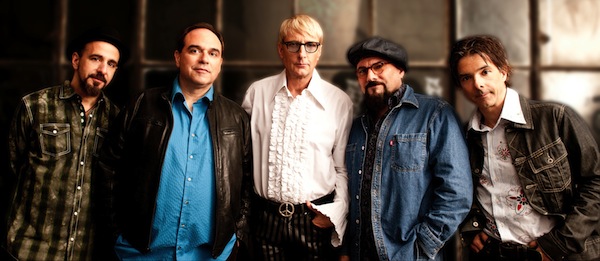
The Beatles never played some of these songs live, so you had nothing to go off of in rehearsals. When you brought them to the stage, did you learn anything new about the material?
I think the first thing that any Beatle band learns in the beginning is how you thought you knew the song. But in the process of trying to play it and learn it well enough to make it presentable, you do the best version you can in the beginning. Then you go back and listen and at that point, you’re able to peel back the next layer of the onion that these records are, and hear the stuff you didn’t hear before. You then go and perform it with new information and then go back and listen, and hear new stuff. This keeps going on and on. We’ve been doing this since 1998 and we’re still discovering new stuff.
We’ve been digging deep into this stuff for all that time and since that’s happened a lot of bootleg stuff has been released where you can just go to YouTube and hear isolated tracks. We used to do all sorts of trickery to figure out, assume and sometimes understands what these songs were made of.
In the words of [Sgt. Pepper producer] George Martin, when I was able to ask him once—was Sgt. Pepper really done on four tracks? He boiled it down to an answer which was, “Well in the end it really ends up on two anyway, doesn’t it?”
I was really intrigued by how you get all this information to sound so good by constantly reducing tracks down to 2, 3 and then finally 4. With the fact that it is just two tracks you have there is a lot of mysterious sounds that you don’t know what they’re made out of.
The technology back then was not even a thousandth of what it is now. It’s amazing they were able to do what they did
Yeah, well that’s why the later stuff is now able to be heard on YouTube as isolate tracks because they were using more multiple tracks in later years of recording. In the beginning it was just a mush of sound. For the main bassist, or actually all five guys play bass in the band, we switch around instruments sometimes. That bass part is so elusive on the early songs, on “Hard Days Night” it’s almost impossible to hear what the bass part is on that song. It will probably never be easy to be heard unless they come up with some new technology to isolate it better. Now, it’s like “plaid” notes, there is no single sounding bass part on there, it’s like [hums bass line]. You can cover your mouth and make the sound just as easy as the record sounds.
They have to be up there as far as great studio bands. It’s a shame they didn’t get to flush out some of this stuff on stage
It’s unfair because of the timing of it all. It’s like a disease that someone died of and they found the cure last week. They gave us all this great information. Maybe they didn’t want to play it live. For them the thrill of them playing live ended already as The Beatles. Maybe it wasn’t a thing they needed to do. Of course now McCartney goes out now and does a lot of that stuff.
Let’s talk about George Harrison, since he’s the man of the hour at the upcoming Beacon Theatre show. You played with George at one of his last shows, right?
In fact it was his last show. The function of the show was he was trying to get attention and get actually seats in Parliament for the Natural Law Party, which is a group of meditation people. They wanted representation in the government, which is pretty cool. George, the original “let’s do a concert for the benefit of something” guy was able to really think this way. He put together this concert in London at the Royal Albert Hall which was made up of people that had just done the “Live in Japan” album and tour—Eric Clapton’s band, with the addition of some other cats to fill in the blanks.
Eric’s bass player Nathan East couldn’t make it at the time, so George gave me a call and it was augmented by my Matt Campbell on guitar and Gary Moore on guitar for that concert. The rest was the Clapton band at the time.


No Comments comments associated with this post